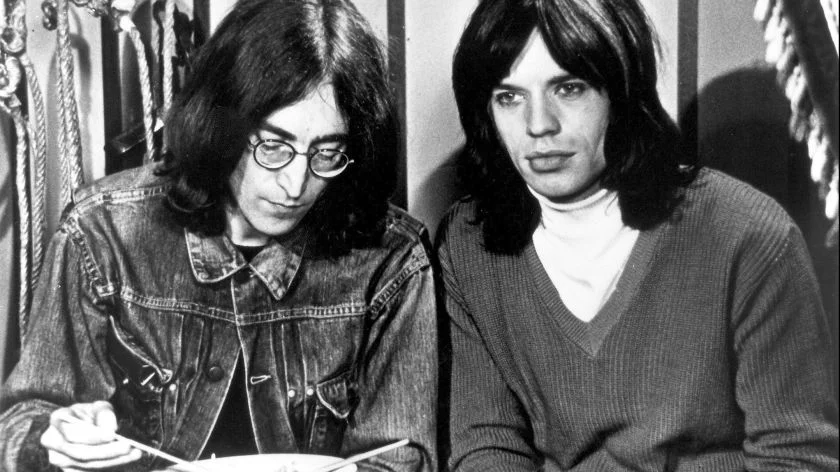By The Landlord
“The single biggest problem in communication is the illusion that it has taken place.”
– George Bernard Shaw
It happens from an early age and throughout our lives. Messages sent, for example, through third parties. Where? Well, ask your Mum. How? Tell Dad she said you can. Then later, do you think that girl or boy might fancy me? I'm too shy. Can you check, and maybe let them know? From family life to love scheming, work hierarchy to the politics of, well, politics, lines of communication are often never direct. But is this always reliable? Is indirect communication prone to distortion, or can it offer greater clarity and emotional distance?
Humans often don't just tell each other straight. We have various forms of nuance, gossip, and other media at our disposal. We weave other means, sometimes subtle, gentle, sometimes brutal. We might ask others to deliver messages from us to other people, perhaps due to cowardice, or lack of responsibility, or because it’s sensible, or any other reason to avoid actually speaking in person to the recipient. And now, with even more ways to communicate than ever, it is all too easy to avoid direct contact.
In the most emotional situations, this could be scribbled notes to say I love you, or goodbye, or to say sorry, telegrams to telephone answering machines or voicemail, anything from carvings in tree trunks to aeroplanes pulling massive signs across the sky. And perhaps even a prayer via God might be seen as an indirect attempt to tell someone something. Speak now. The machinery is the method:
I’m not here. Leave your name and number …
So this week our topic is all about indirect messages, whether that is the main plot of the song, or something that happens within it. In songs long ago chosen for other topics, for example at least the Marvin Gaye version, did songwriters Norman Whitfield and Barrett Strong have in mind a lover who put out a rumour that they no longer wanted to "be mine" on the grapevine? Or more obviously, and with a sense of tragedy on Bowie's Space Oddity, Major Tom suspects he's not returning, and so tells Ground Control: "Tell my wife I love her very much – she knows.”
A light that will go out. Message from space.
There are many ways and contexts to send an indirect message. Third parties might be friends or relatives, doing a favour, explaining, calming, healing, although they could also inflame a situation. Or they might also be employees, someone sent to have a quiet word, or to bring bad news to a larger group. Or they could be a professional aide, someone in the employment of film stars, rock stars or presidents, used to discreetly invite an attractive individual into a limousine, a dressing room, or backstage area for a dangerous liaison.
But outside the seedy world of power, fame or glamour, indirect messages come in many forms in everyday life from love letters and cards, flowers and other gifts, perhaps sent anonymously. And there are many ways to send such messages without direct contact of course, either by choice or necessity. Bleeps across space? Time capsules? A note in a bottle? Morse code? Semaphore? Or carrier pigeon, anyone?
On a wing and a prayer …
Or more tragically, suicide notes could also come into this topic. These are often addressed to an individual, but arguably there is nothing more indirect than communicating from the grave. Kurt Cobain, Hunter S Thompson, Vincent Van Gogh, Virginia Woolf, Wendy O. Williams and Robin Williams are some of many who have done this with a telling format. And in turn, actions can also be a way of sending a message. as much as ignoring someone completely.
Songwriters sometimes write songs as an entire means to send an indirect message to a certain individual, to express their feelings about them or a situation. In the context of love songs, they are often written to and about a current, future or ex-lover, or perhaps a rival, a relative, and either of those could be another person in the band. Often packed with emotions and repressed feelings, they are disguised, or interpreted as universal or just throwaway lines, but underneath all of this, spun through the prism of song, at someone in particular.
Hey you, get offa my girlfriend. Lennon and Jagger.
For example, aside from messages to lovers or wives, John Lennon and Paul McCartney regularly did this to each other in the latter half of the Beatles era, as did Paul Simon to Art Garfunkel, or Ray Davies to his brother Dave. And of course they all did to rivals in other bands. And when sexual liaison or even marriage happens within a band, such as the various members of ABBA or Fleetwood Mac, the results can be as creative as destructive. Behind huge sales success and public acclaim, super famous songwriters and artists often also inhabit a tiny social scene, a writhing nest of isolation, where sleeping with each other, and having to perform together, and function professionally, means that indirect messages can only be sent in other ways often via lyrics.
There are countless examples of indirect messages in books and film. In the previous topic of songs about secret admirers in which I touched on examples from those inspiring French works Cyrano De Bergerac and Amelie. Meanwhile the plots of Jane Austen and Charles Dickens hinge on many found letters making a sudden revelation, or in the former, the many subtle attempts to inspire love or deflect attention in a social scene in which awkwardness and indirectness in the etiquette of social nicety are the norm. But by contrast, film offers another format for indirect communication – the video message. This often appears, for example, when someone has died, but in the case of the sci-fi comedy fantasy Total Recall (1990) directed by Paul Verhoeven, starring that ultimate awfully bad but somehow also great movie actor Arnold Schwarzenegger, it is a message to himself, not after death, but when he is beginning to recover his true identity as secret agent rebel hero on after his mind had been taken over by the powers that be to work for the wrong side. The film is based on the 1966 short story, We Can Remember It for You Wholesale, by Philip K. Dick. Here’s Arnie then, telling himself what to do, sort of indirectly, with strange, offbeat humour.
There are many songs that are about, or contain indirect messages, through all means and by the famous or less well known out there, but here’s a starter, and another one to self. Mark Lanegan, king of the deep, dark grizzly voice, leaves a message from a payphone to his answerphone, but will he, or anyone else ever hear it?
So then, this week’s head of communications, I’m delighted to say, brought to you via the delightfully indirect means of the Bar, is the omniscient Olive Butler! Place your messages containing song titles, ideally lyrics, justifications and YouTube links related to this topic in comments below. Deadline? This coming Monday 11pm (UK time) last orders, for playlists published on Wednesday.
New to comment? It is quick and easy. You just need to login to Disqus once. All is explained i in About/FAQs ...
Fancy a turn behind the pumps at The Song Bar? Care to choose a playlist from songs nominated and write something about it? Then feel free to contact The Song Bar here, or try the usual email address. Also please follow us social media: Song Bar Twitter, Song Bar Facebook. Song Bar YouTube. Subscribe, follow and share.





